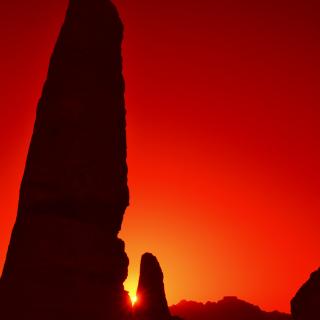Bibcode
González García, A. C.; Belmonte, J. A.
Bibliographical reference
Mediterranean Archaeology and Archaeometry, Vol. 14, Nº2, 95-113.
Advertised on:
6
2014
Citations
0
Refereed citations
0
Description
The idea of temporality and how this concept is introduced in the ritual domain could be investigated in past cultures through measurements of the orientation of cultic buildings, provided that such orientations are linked with particular astronomical events. Hellenic societies, among those of the Mediterranean Iron Age, had a need to regulate time through a calendar. The orientation of Hellenic temples in present day Greece and the South of Italy have recently been shown to be somewhat dissimilar, despite the obvious cultural links. In the present paper we verify if the samples of orientations of Hellenic temples in five distinct geographic areas are consistent with each other from a statistical point of view. Then we compute the internal variability among these groups by comparing them with other samples of temples acrossthe Mediterranean, both for the Iron and Bronze ages, in order also to find possible long duration effects on the orientation of temples. Despite apparent discrepancies when directly comparing the Hellenic samples, a clear similarity among these groups of temples appear when we compare them with temples from other societies. Such comparison links closer the temples in Greece with those in Lycia and perhaps Cyrene, and the ones in Sicily with those of Magna Graecia. As a by-product, we find other possible concordances among sacred building orientations across the Mediterranean that may deserve further exploration in the future.
Related projects

Archaeoastronomy
The main objective of this project is to study the importance of astronomy as a fundamental part of human culture and civilization from Paleolithic to the present day. Our interest is mainly devoted to the people of the ancient Mediterranean cultures from the Atlantic to the Middle East, with a special dedication to Spain, its geographical
Juan Antonio
Belmonte Avilés